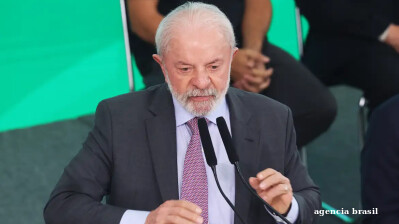Bolivian President Luis Arce reaffirmed the nation's commitment to the legal uses of coca leaf, claiming that "it is not cocaine." During the National Acullico Day event in La Paz on January 11, Arce highlighted the government’s ongoing efforts to industrialise coca products, while acknowledging that the leaf’s misuse by international drug cartels remains a significant problem.
Arce's message to the crowd was clear: "Coca is not cocaine," a stance that has been central to Bolivia's narrative in global debates over the leaf's legal status. Despite its cultural, medicinal, and nutritional benefits, coca leaves are still often sold to criminal organisations, which turn it into cocaine hydrochloride through a lengthy chemical process. "The government will never support the misuse of coca for illegal purposes," Arce said. He also announced the progress of the Kokabol plant in Sacaba, Cochabamba, which is set to begin operations in July 2025, transforming coca into products like infusions, pharmaceuticals, and candies.
As part of Bolivia's ongoing push for coca’s medicinal and economic potential, Arce also revealed plans for a second industrialisation centre in Coroico, in the Yungas region. This project, with an investment of over BOB108mn ($15.6mn), will focus on extracting aqueous and alcoholic products for the production of energy drinks, medicines, and cosmetics.
The government aims to change the international perception of coca by seeking its reclassification through the World Health Organisation (WHO), a move intended to allow Bolivian coca products to be legally exported globally. As the country celebrates its cultural heritage through the practice of "acullico" (chewing coca), which has spread beyond the Andes, Arce envisions a future where industrialised coca products benefit both domestic and international markets.
With Bolivia's coca industrialisation efforts gaining momentum, Arce’s administration aims not only to preserve this ancient tradition but also to ensure that coca's economic and health-related potential is fully recognised on the world stage.
News

Brazil's Lula announces fourth presidential run at 80
Brazilian President Luiz Inácio Lula da Silva has announced he will seek re-election in October 2026, confirming his candidacy during a state visit to Indonesia on October 23.

Serbian president blames opposition for “terrorist attack” outside parliament
President Vucic blamed opposition groups for what he described as a “terrorist act” outside the National Assembly in Belgrade, after a 70-year-old man opened fire on a camp of government supporters and set fire to one of their tents.

IOC sanctions Indonesia over Israel visa ban
The International Olympic Committee has announced that international sports federations will be advised not to hold competitions or meetings in Indonesia after the country barred Israeli athletes from entering.

Serbian president accuses EU of backing “colour revolution” after European Parliament adopts harsh new resolution
MEPs back the toughest rebuke yet from Brussels towards Serbia in over a decade of EU candidacy.



-fotor-bg-remover-20251020114620.png)
_1760463463.jpg)